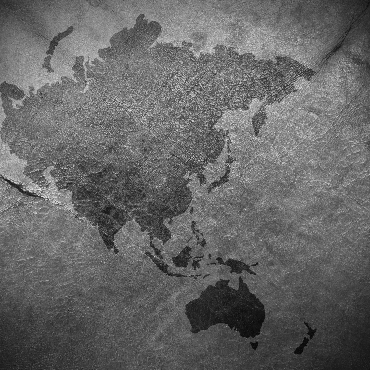BIDEN, YOON BOLSTER AMERICAN EXTENDED DETERRENCE IN SOUTH KOREA
On April 26th, the United States and the Republic of Korea (ROK) marked the 70th year of their bilateral alliance by issuing the "Washington Declaration," a joint agreement on bolstering deterrence on the Korean Peninsula. Under the Declaration, the U.S. agreed to consult the ROK on possible nuclear weapons usage, and also committed to increased visits from strategic assets like nuclear ballistic missile submarines. In return, South Korea reaffirmed its commitments under the Nonproliferation Treaty. Both sides also agreed to the formation of a Nuclear Consultative Group, which will streamline exercises and nuclear simulations.
The Declaration is the result of Seoul's lingering uncertainty about the reliability of American extended deterrence, due primarily to former President Donald Trump's musings about withdrawing troops from South Korea. A recent uptick in missile tests by North Korea has also stoked populist desire in the ROK for an independent nuclear capability, an idea which President Yoon Suk-yeol floated earlier this year. Prior to the Washington Declaration, Yoon also suggested reintroducing American tactical nuclear weapons to the Peninsula. (The White House, April 26, 2023; New York Times, April 26, 2023)
JAPANESE PM SWINGS THROUGH AFRICA IN OUTREACH TOUR
Over the past decade, Beijing’s diplomatic overtures and economic assistance have faced scant competition in Africa. As a result, China’s popularity has soared throughout the continent. The festering problem of bad Belt and Road Initiative (BRI) loans, however, is opening the door to nations like Japan and other G7 members to respond. Prime Minister Fumio Kishida’s recent trip to Africa served as a preview of sorts of the West’s ongoing efforts to respond to China’s BRI. Instead of going toe-to-toe with Beijing on large infrastructure projects, Kishida discussed smaller-scale assistance packages with counterparts in Egypt, Ghana, Kenya, and Mozambique. The timing of Kishida’s trip is important, as he is set to chair the next G7 meeting later this month, when member states will have an opportunity to craft aid packages to African countries. (Reuters, May 4, 2023; Nikkei Asia, April 20, 2023)
...WHILE BURMA PAVES THE WAY FOR CHINESE PLANES
New Delhi, however, is not alone. The Indian military is monitoring developments and infrastructure projects on Burma's nearby Great Coco Island. The projects began in 2014 and focused primarily on enhancing and lengthening an airstrip, which can now service military aircraft. According to the Wall Street Journal, "Chinese engineers and military personnel have been spotted on the island in recent years... that bolsters New Delhi's assessment that Beijing could be providing technological and other backing for Great Coco's militarization." (Wall Street Journal, April 15, 2023)
WASHINGTON AND MANILA TRAIN TO CONTROL CRITICAL WATERWAY
After House Speaker Kevin McCarthy's meeting in early April with Taiwanese President Tsai Ing-wen, Beijing responded with aerial and naval exercises around Taiwan. Weeks later, however, the United States and the Philippines conducted their largest joint military exercise to date in the same waters. Unlike China's ad hoc retaliation, the Washington-Manila drills were an annual event. Even so, they intentionally focused on the Bashi Channel, a narrow strait separating Taiwan's southernmost tip from the Philippines' northernmost point. On Basco island, U.S. forces practiced air and amphibious weapons delivery via a MV-22 Osprey and an amphibious landing craft. The location is strategically significant. As one retired Philippine general put it, "Whoever controls the channel has a very strategic chokepoint." (Wall Street Journal, April 24, 2023)
WHITE HOUSE WOOS THE SOLOMONS, WHILE HONIARA DELAYS ELECTIONS
In late March, senior U.S. officials traveled to the Solomon Islands to revitalize Washington's relations with Honiara. During the visit, senior White House official Kurt Campbell agreed to send the U.S. Navy Hospital "Mercy" Ship to the Solomon Islands during the 2023 Pacific Games as a goodwill gesture. Notably, the government of Prime Minister Manasseh Sogavare elected to delay nationwide elections to 2024, and used the Pacific Games as an excuse. The Biden administration's diplomatic gambit stems from Sogavare's decision in 2021 to switch diplomatic recognition from Taiwan to the People's Republic of China (PRC), and the subsequent Beijing-Honiara port access deal concluded in 2022. Both decisions boosted the PRC's presence in the Pacific Island region and complicated the security calculations of the United States, Australia, and New Zealand, and especially Taiwan. Meanwhile, a former Solomon Islands regional premier, David Suidani, has accused Sogavare of colluding with Beijing to intimidate and threaten politicians who speak out against the Chinese Communist Party (CCP). (Solomon Islands Government, March 21, 2023; Radio Free Asia, May 2, 2023; Associated Press, September 8, 2022)
